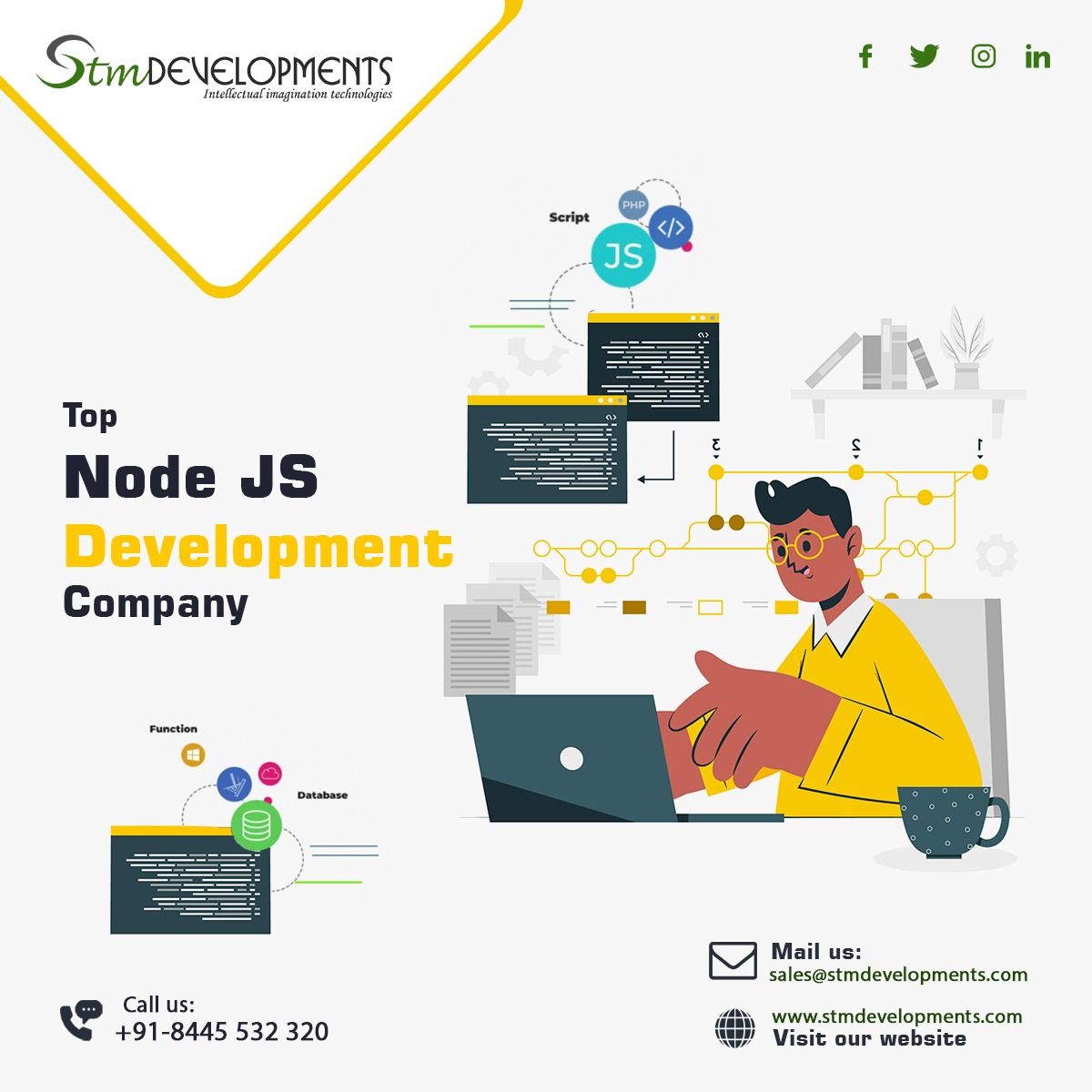Node.js development services for building applications based on the event-driven, JavaScript runtime environment
Node.js is an open-source, cross-platform JavaScript runtime environment that allows developers to run JavaScript code on the server-side. Here are some key points about Node.js:
JavaScript Runtime: Node.js is built on the V8 JavaScript engine, which is the same engine that powers Google Chrome. It enables JavaScript to be executed outside of the browser, on the server-side.
Asynchronous and Event-Driven: Node.js is known for its asynchronous, non-blocking I/O model, which allows it to handle many connections simultaneously without getting blocked. This makes it well-suited for building scalable and high-performance applications, such as web servers, APIs, and real-time applications.
NPM (Node Package Manager): Node.js comes with npm, a package manager that allows developers to easily install, manage, and share third-party libraries and tools. npm hosts the world's largest ecosystem of open-source libraries, making it easy to find and use reusable code components.
Single-Threaded, Event-Loop Architecture: Node.js uses a single-threaded event-loop architecture, where all I/O operations are performed asynchronously. This means that Node.js applications can handle multiple concurrent requests efficiently, without the need for spawning new threads for each request.
Lightweight and Fast: Node.js is lightweight and fast, making it suitable for building real-time applications that require high performance and low latency. It's particularly well-suited for applications that involve heavy I/O operations, such as file system operations, network requests, and database queries.
Cross-Platform: Node.js is cross-platform, meaning it can run on various operating systems, including Windows, macOS, and Linux. This allows developers to write and deploy Node.js applications across different environments with ease.
Extensible and Flexible: Node.js provides a rich ecosystem of modules and libraries, allowing developers to extend its functionality and build a wide range of applications, including web servers, RESTful APIs, microservices, desktop applications, and IoT (Internet of Things) devices.
Community and Support: Node.js has a large and active community of developers who contribute to its development, share knowledge, and provide support through forums, tutorials, and online communities. This vibrant community helps drive innovation and adoption of Node.js across various industries.
Overall, Node.js is a powerful and versatile platform for building scalable, high-performance applications using JavaScript on the server-side. Its asynchronous and event-driven architecture, coupled with a rich ecosystem of libraries and tools, make it a popular choice for building modern web applications and services.





